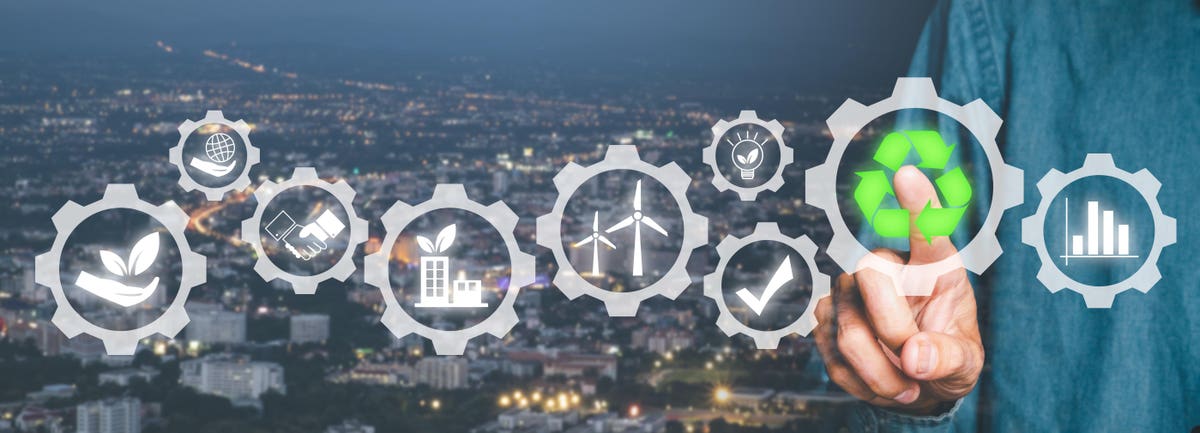The world is facing unprecedented economic, environmental, and social challenges that require innovative solutions and bold leadership. Yet some of our key training grounds for future leaders – such as MBA programs – enduringly focus on short term and outdated premises that only further our global social and environmental crises.
The Next Economy MBA seeks to change this by offering a curriculum that emphasizes sustainability, equity, and social responsibility. It was great to catch-up with Ryan Honeyman about this curriculum that he and his colleagues at LIFT Economy developed by working with over 250 social enterprises and organizations over the last 10 plus years.
They have recently released book based on this program The Next Economy MBA that not only covers traditional MBA material like business strategy, finance, marketing, recruiting and others from a socially just and environmentally regenerative perspective but also examines more cutting edge topics like cooperatives, self-managing organizations, strategies to reverse climate change, racial justice, and more.
Read below for more from my discussion with Ryan, and also I encourage you to pick up this important new book too!
Christopher Marquis: Why did you write this book?
Ryan Honeyman : We wrote The Next Economy MBA for two reasons. First, we believe that it is ecocidal and suicidal to not transform the business as usual economy. We want a livable future for our families, our communities, and for all of life. And we see the latent potential all around us. Humanity has not scratched the surface of the abundance, joy, connection, peace, and reliable prosperity that is possible for all beings.
We have seen this possibility and potential in the 500+ alumni from our course, The Next Economy MBA. This book was born out of the courageous conversations, case stories, and principles from that book and is designed for those who are feeling and exploring those tensions and possibilities in their own lives, organizations, and communities.
Marquis: Can you describe what you mean by the “Next Economy”?
Honeyman: The “Next Economy” is our name for an economic system that works for people and the planet. We imagine the Next Economy as a bioregional, locally self-reliant, and racially just economy that works for the benefit of all life—one that meets basic needs for all people everywhere while regenerating planetary ecosystems.
The Next Economy is both an aspirational vision and something that partially exists today. We’ve seen it in our work with more than 300 social enterprises over the past decade. This includes our work with smaller, more radical companies such as Winona’s Hemp & Heritage Farm and the East Bay Permanent Real Estate Cooperative as well as our work with larger social enterprises such as Patagonia and Ben & Jerry’s.
Marquis: How do we transition from what you call the “business as usual” economy to the Next Economy?
Honeyman: We often refer to the Berkana Institute’s Two Loops model to understand the transition from a dominant, old system (BAU economy) to an emergent one (Next Economy) and how to partner with the natural force of evolution to transition to the new and more adaptive system.
The model itself is a simple drawing of two curves or loops. The “hospice” curve descends, representing the gradual “death” of the existing system (in our case, the BAU economy). The “midwife” curve starts under the hospice curve and moves up, representing the birth or emergence of a new system. Together they represent the journey from now to the full realization of the Next Economy.
One important insight is to see hospice and midwife efforts as complementary rather than separate. For example, hospice efforts can sometimes access funding and resources for midwife efforts. Hospice efforts can bring visibility to emergent, Next Economy projects. Midwife efforts can sometimes inspire organizations that were only interested in incremental change to make radical shifts. The Next Economy will be achieved more quickly if we can grow an appreciation for both approaches.
Marquis: What is the most important takeaway from your book for companies?
Honeyman: We believe that every company should examine where they fall in the Two Loops model and understand that most organizations contain both hospice and midwife elements. In addition, neither hospice work nor midwife work is “better” or “more important” or “more impactful.”
Knowing the role that your organization can play in the Next Economy through a hospice/midwifery lens, or in elements of both, will help you to understand the next steps you can take to co-create a world that works for all life.
The facilitated Next Economy MBA course is an excellent way for organizational leaders who are interested in these principles to explore them more deeply in a supportive learning community.
Marquis: What is the most important takeaway from your book for individuals?
Honeyman: Although companies bear a significant amount of responsibility for transitioning to the Next Economy, we should not neglect the role and responsibility we each play as consumers, citizens, and voters.
Aligning our consumption habits with our vision of the Next Economy, holding businesses accountable to their commitments to environmental and racial justice, and building movements and power are all critical steps to building the Next Economy.
Those who are interested in staying involved in this work can listen to our podcast or subscribe to our newsletter for resources and case stories that may be useful on their path.
Read the full article here




